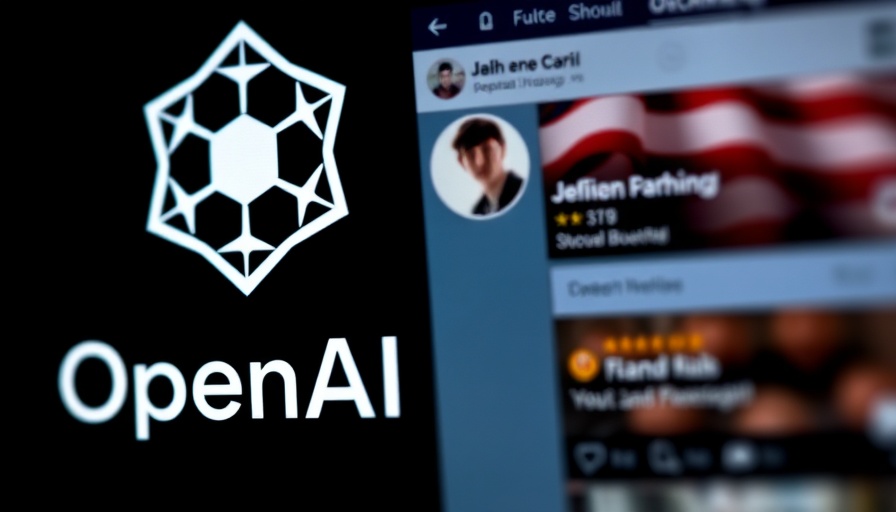
The Legal Showdown: Musk vs. OpenAI
The much-anticipated legal battle between tech mogul Elon Musk and the artificial intelligence powerhouse OpenAI is progressing swiftly, with a trial date set for December. Both parties have decided to expedite the proceedings, as reported by Reuters. At the heart of this legal conflict lies Musk’s concerns about OpenAI's transformation from a nonprofit organization to a for-profit model, a dramatic shift that could alter its foundational mission of creating AI for the greater good.
Historical Context: A Shared Beginning
Back in 2015, Musk co-founded OpenAI alongside tech visionaries such as Sam Altman. Their original goal? To promote and advance AI technologies in a way that would benefit humanity, addressing potential existential risks posed by artificial intelligence. However, as the generative AI boom surged, shifting public perception of AI's commercial potential, Musk distanced himself from the organization by leaving in 2018, expressing concerns over the influence of profit-seeking partnerships, particularly one with Microsoft.
The Stakes: Why the Transition Matters
OpenAI's shift to a for-profit structure is crucial for securing capital in a highly competitive market. The company needs funding to fuel its ambitions in AI, with a $6.6 billion funding round already completed and plans for an additional $40 billion underway. Musk believes this move diverts from OpenAI's ethical framework, asserting that the organization's pivot undermines its original ethos focused on public welfare.
Diverging Paths: Musk's New Venture, xAI
In response to OpenAI's evolution, Musk founded xAI, which aims to create advanced AI systems aligned with his vision for beneficial technology. Critics argue that his lawsuit represents a conflict of interest, as Musk seeks to hinder a competitor while simultaneously launching his own AI venture. OpenAI counters this by claiming Musk's actions are self-serving, hindering progress and innovation for his gain.
The Trial: Key Questions Awaiting Answers
The upcoming trial is not only significant for Musk and OpenAI but could also set important precedents in the AI landscape. One of the unresolved issues is whether the case will be heard by a judge or a jury—a decision that could have implications for the case's outcome. As the trial approaches, stakeholders and observers wonder how the court will navigate the complex interplay of nonprofit ethics and profit-driven motives in AI.
Future Perspectives: A Changing AI Landscape
The ramifications of this trial go beyond Musk and OpenAI. As generative AI becomes increasingly embedded in society, the legal framework surrounding its development and deployment is evolving. The outcome of this case could impact not just OpenAI’s trajectory but also influence regulations and funding models for AI startups worldwide.
OpenAI's Policy Proposals: Balancing Innovation and Regulation
In a bid to assert its place in the future of AI, OpenAI recently submitted several policy proposals to the White House, aiming to bolster America’s AI dominance. These include a call for the federal government to centralize AI regulations to alleviate the fragmented landscape at the state level and ensure safety measures for AI technologies. Such moves reflect OpenAI's strategy to navigate regulatory challenges while fostering innovation.
Conclusion: The Intersection of Innovation and Ethics
The impending trial between Elon Musk and OpenAI embodies the intersection of innovation and ethical considerations in the rapidly evolving world of artificial intelligence. As this legal saga unfolds, it prompts crucial questions about the responsibilities of AI organizations to maintain their founding principles amid commercial pressures. For AI enthusiasts, keeping an eye on this landmark case will not only reveal the future of OpenAI but also the broader implications for AI governance and ethical practices.
 Add Row
Add Row  Add
Add 




 Add Row
Add Row  Add
Add 

Write A Comment